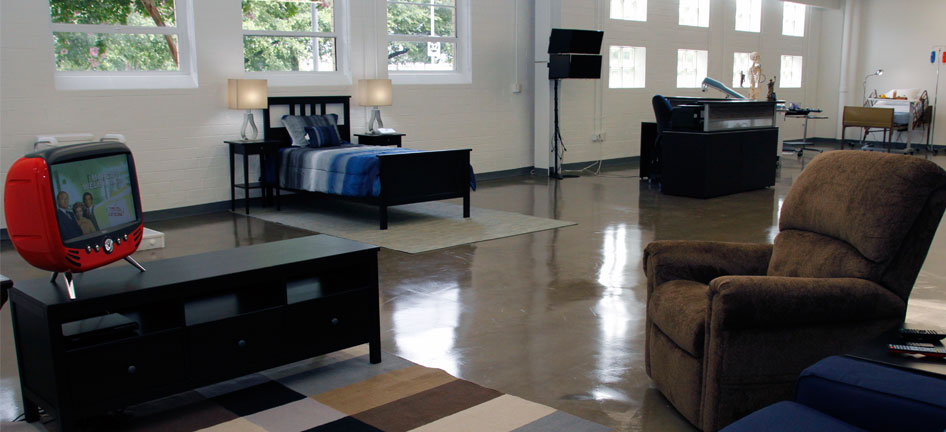AT&T’s Foundry for Connected Health, which just opened inside the Texas Medical Center’s (TMC) Innovation Institute in Houston, is on a mission to help caregivers and patients bridge the gap between the clinical and home settings through the use of digital technology, according to the company.
The new unit is serving as a resource for the medical center’s physicians looking to create integrated and connected healthcare advancements. TMC’s Innovation Institute houses several medical programs, including the TMCx accelerator, a fellowship program, as well as a workspace for health startups and innovation incubators.The move is intended to address the difficult situation faced by many health care providers faced with a shortage of doctors and nurses, but an influx of patients, according to AT&T, which added that the plan is to improve care while still lowering costs by using shared skills and technology.

A view from inside the new innovation unit. (Photo courtesy of AT&T and Texas Medical Center)
With the new Foundry specifically focused on health, AT&T and TMC teams will work with healthcare companies, start-ups and entrepreneurs to wirelessly connect emerging medical technology that can give doctors and caregivers new insight into a patient’s health as well as improve care overall, according to the company.
The communications company already works with hundreds of hospitals by enabling services ranging from traditional connectivity to remote patient monitoring, to connected wheelchairs and glucometers, to pain detection and MPERS devices, a spokesperson said.
Innovation in healthcare can be slow compared to many other industries, with some studies saying it can take 17 years for healthcare innovation to evolve from research to practice. AT&T hopes to make it possible to bring products and services to market more quickly.
“We’ve been listening to the health care industry, many of whom are already customers, about the challenges they face today,” the company’s Chris Penrose, senior VP, Internet of Things, said in a press statement. “We want to help create stronger connections between caregivers and patients. By applying the Foundry model and IoT insights into health care, we can help providers accomplish their goals.”
The company plans to collaborate with the hospitals, clinics, startups, and other Texas Medical Center facilities by allowing use of its technology.
“Digital health is the next frontier for innovation as we work to improve the way we take care of patients in our hospitals, ultimately extending that care beyond hospital walls and into patients’ daily lives at home,” Robert C. Robbins, MD, president and CEO of Texas Medical Center, said.
Some 8 million patients and their families visit the Texas Medical Center group every year. Its 56 member institutions include 21 hospitals, 13 support organizations, eight academic and research institutions, six nursing programs, three public health organizations, three medical schools, two universities, two pharmacy schools and a dental school.
Recently, the group announced creation of the TMC3 Innovation Campus, a new 30-acre development that will promote further research collaboration. More information is available at www.tmc.edu.


